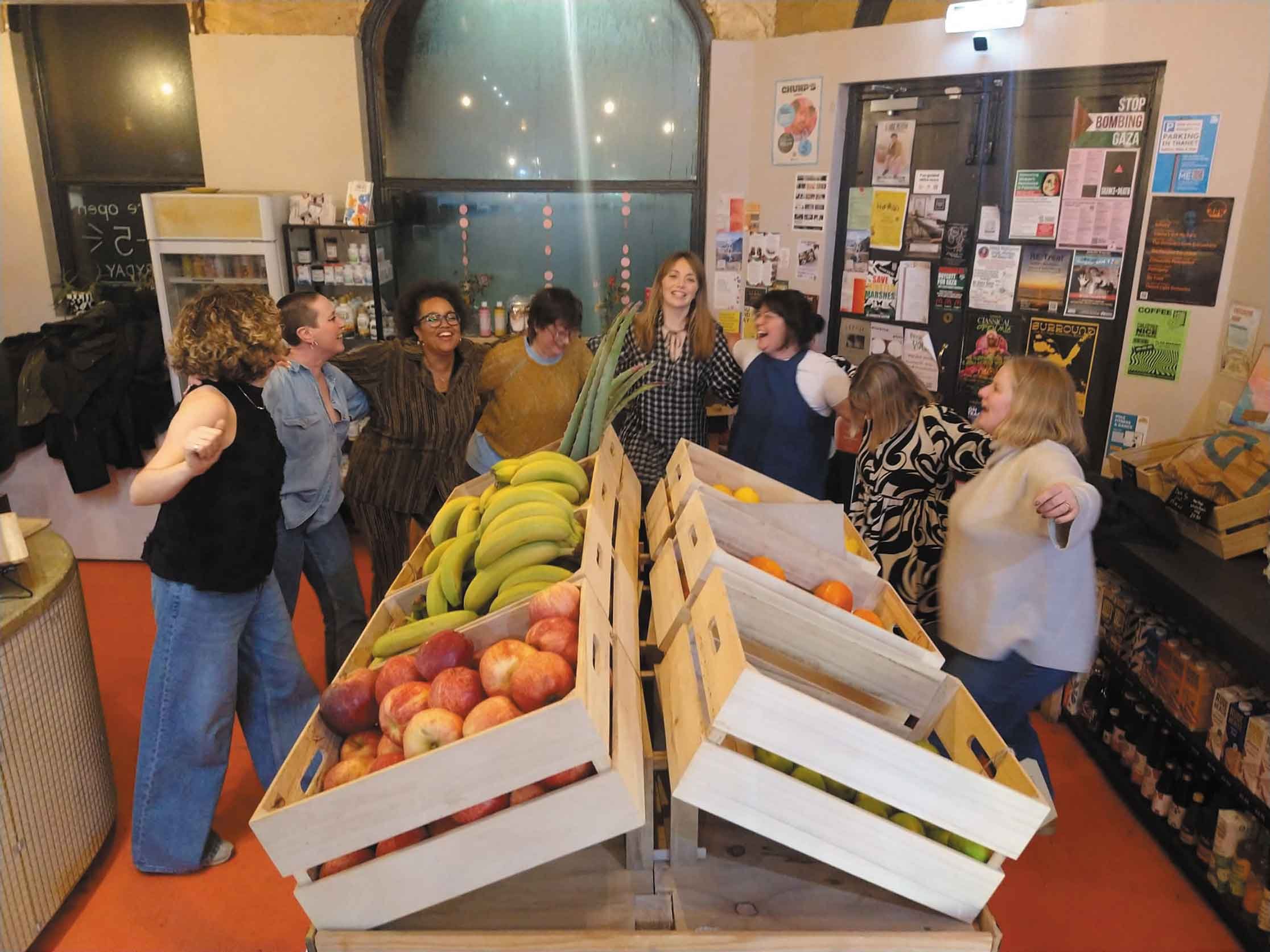Column: The Intimate World of Margate Supper Clubs
Less fleeting and more eating - conversation and authenticity are on the menu as the Margate Supper Club scene goes from strength to strength
Soup Mother
Ask any Margate resident what their social calendar looks like and you’ll probably hear at least one local club name-dropped – from the Social Singing Choir to That Running Club, from Queer Swimclub to Margate Social.
Though it’s Kent’s seventh most populated settlement, one of the best parts of Margate living tends to be the sheer volume of friendly faces you’ll bump into the moment you leave the house, whether you’ve popped down to Walpole Tidal Pool for a dip or into Forts Cafe for a quick coffee.
It may come as no surprise, then, that as a well-known foodie mecca, one of Margate’s best pastimes exists at the nexus of where food and sociability collide - that of the humble ‘supper club’, of which Margate has at least 10 in rotation at any given time.
Steph's Supper Club
Long considered a mainstay of the London dining scene, the supper club has always embodied a unique mix of inventive cuisines and intimate atmospheres that has only proliferated in recent years. Thanks to its highly curated aesthetics and hyper-fleeting pop-up nature, the supper club effortlessly checks all the algorithm-friendly boxes that made it a post-2010 Instagram feed sensation and only picked up speed when post-lockdown diners re-entered society with a new thirst for communal experiences.
Yet while Margate’s DFL-heavy culinary scene has followed suit with a similarly booming dinner-party line-up, there seems to be something in the water that makes its supper clubs stand out against the rest. Whereas London affairs can sometimes contradict the very qualities supper clubs were designed to embody (such as inclusivity, informality and affordability), today’s offerings in Margate seem to hearken back to when supper clubs were truly raw and experimental, and when food could catalyse meaningful gathering.
“The supper clubs in Margate are places where you can genuinely feel like family…”
Speaking to Daniel McGeough and partner James Abbott of Feast Club, it’s this genuine community-building aspect that Margate supper clubs nail in comparison with their big-city counterparts, which can feel surprisingly corporate and leave diners to get lost in the crowd instead of with bona fide friendships in the making. Self-described as “a love letter to everything we have ever eaten”, Feast Club’s goal - true to its name - is also to deliver the same gourmet cuisine you’d find at a top-notch restaurant without the microscopic portions that are traditionally served. “I don’t think I have left a restaurant and not felt hungry straight away in a pretty long time,” says McGeough. “We want you to be STUFFED!”
For Isobelle Boltt of Soup Mother, there’s a similar high-low interplay at work - not only by elevating the oft-unassuming soup to the main event but by “offering an opportunity to dine cheaply and heartily” that channels “a nourishing, maternal energy”. Where haute cuisine has characteristically involved a certain machismo and formality that caters specifically to the wealthy, Soup Mother aims to revert food service to its humble and intimate role of providing care.
“Generosity” is similarly what Steph Dickinson would call the core of Steph’s Supper Club, which serves Cypriot and Greek recipes from her family’s heritage. “My grandparents grew up in a little village in Cyprus where money was tight, so they had to be incredibly creative and resourceful. Despite the lack of resources, they cooked some of the tastiest, most beautiful food I’ve ever eaten. Even when my grandparents moved to North London in the 50s, there was always room at their table and no one would ever go hungry. It’s this culture that I want my supper clubs to emulate,” says Dickinson, which she does by offering affordable and even low-income tickets.
Della Rovere Pasta
While Margate supper clubs could be said to excel in turning rooms of strangers into friends due to the town’s modest size alone, it’s also worth noting how they’re almost entirely headed by non-classically-trained home chefs. They also tend to opt for cosy, intimate venues rather than the giant warehouses or fields of sprawling tables we’ve all seen on social media.
From Cliffs cafe to Picnic Deli to Big Shot Diner to The Grain Grocer, Margate supper clubs have succeeded in establishing a symbiotic relationship with local establishments whose daytime-only hours allow for friendly venue-swapping and shared marketing, and whose existing kitchen infrastructure can allow any self-taught cook to turn a culinary idea into a thriving dining experience overnight.
Much like Steph’s Supper Club’s incorporation of Greek dancing and ouzo-tasting, it’s also evident how contemporary supper clubs can succeed at creating community when they reach back into the rich cultural traditions of people around the world - forging strong social ties in times when connective technologies were yet to exist, and when communities often had to band together in times of poverty and famine to ensure all mouths were fed.
Feast Club
For Lorenzo Della Rovere of Della Rovere Pasta, who has hosted a handful of pop-ups around town and whose new supper club will launch this autumn, the focus is on Italy’s casual eateries. Acting as gathering places for the neighbouring community, aperitivos are served buffet style, while the owner comes around with a bottle of amaro welcoming everyone. “It will be a place where you can turn up alone and know you’ll run into people, or meet new people, with no pre-bookings necessary.”
Chatting with soon-to-launch venture Club Apéro, officially headquartered in Margate and set to start serving suppers around Kent this autumn, it’s “this element of punk rebellion that formally opposes mainstream (and Michelin star) restaurants” that sums up why supper clubs effortlessly bubble up and thrive in Margate. The attitude of local ventures seems to always aim for the capital’s quality while striving for something particularly offbeat that wouldn’t be accessible to urban culture.
Soup Mother
“Margate will always have world-class dining options, but I think we’ll continue to see this boom of eclectic, underground supper clubs that actively push against the elitist restaurant industry,” they say.
“Whether you’re a local resident or just a visitor, people here are looking for experiences that don’t reek of consumerism or hierarchy, and instead feel more rough around the edges and authentic. The supper clubs in Margate are places where you can genuinely feel like family, and I can’t say I’ve ever felt that anywhere else.”
Loren Licata
Loren Licata is an American food writer based in Margate. She is the editor-in-chief of Writerly Magazine and founder of Bottega Bodega.














